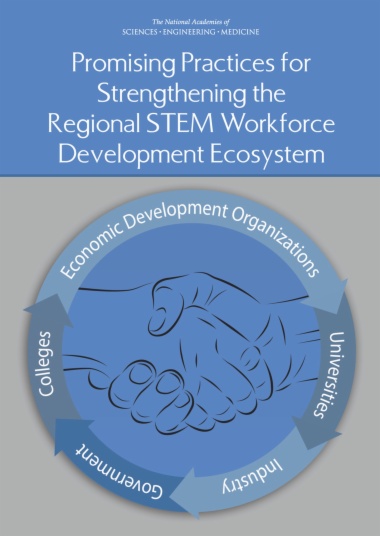

U.S. strength in science, technology, engineering, and mathematics (STEM) disciplines has formed the basis of innovations, technologies, and industries that have spurred the nation's economic growth throughout the last 150 years. Universities are essential to the creation and transfer of new knowledge that drives innovation. This knowledge moves out of the university and into broader society in several ways – through highly skilled graduates (i.e. human capital); academic publications; and the creation of new products, industries, and companies via the commercialization of scientific breakthroughs. Despite this, our understanding of how universities receive, interpret, and respond to industry signaling demands for STEM-trained workers is far from complete.
Promising Practices for Strengthening the Regional STEM Workforce Development Ecosystem reviews the extent to which universities and employers in five metropolitan communities (Phoenix, Arizona; Cleveland, Ohio; Montgomery, Alabama; Los Angeles, California; and Fargo, North Dakota) collaborate successfully to align curricula, labs, and other undergraduate educational experiences with current and prospective regional STEM workforce needs. This report focuses on how to create the kind of university-industry collaboration that promotes higher quality college and university course offerings, lab activities, applied learning experiences, work-based learning programs, and other activities that enable students to acquire knowledge, skills, and attributes they need to be successful in the STEM workforce. The recommendations and findings presented will be most relevant to educators, policy makers, and industry leaders.